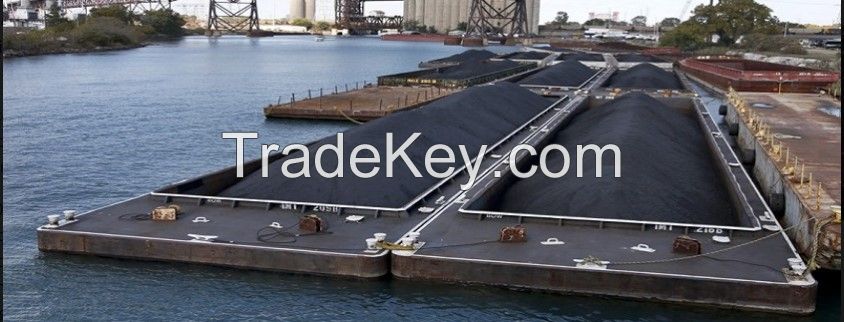





离岸价格
获取最新报价45 ~ 55 USD / Metric Ton ( Negotiable )
|50000 Metric Ton Minimum Order
Russia
联系人 Mr. Alexander
Bazhova street, building 8, floor 1 room VI room 8, Moscow, Moscow
Petroleum coke (petcoke) is one of many valued products produced
during the oil refining process. In petroleum refining world
crude oil is processed into gasoline, diesel fuel, jet fuel,
lubricating oils and waxes, leaving some residual crude that
usually undergoes additional processing. The crude residue
may be further refined (depending from refinery configuration) by
a process known as Coking to produce
incremental transportation fuels as well as petroleum coke, which
has a variety of uses as an alternative, cost-effective fuel.
Although petroleum coke is in many cases considerate a
refinery by-product and not a well-liked material, it is
nevertheless an important industrial product which finds wide
acceptance in many metallurgical and chemical process. Its
most important use is in the aluminum industry where this product
after a calcination process is used in the manufacture of anodes
for the aluminums refining potlines.
Uses of Petroleum
Coke
Worldwide petroleum refinery production of petroleum coke is
typically divided in two types - Fuel Grade and Anode grade
(generally referred as Green Coke) and its used as a source of
energy or as a source of carbon for industrial applications.
Fuel grade petcoke represents nearly ****0 percent of the global
refinery petcoke production is used as a source of fuel for
cement kilns and electric power plants and other niche
markets.
The remaining ****5 percent is generally considerate as Anode
Grade and its typically processed into Calcined petroleum coke
grade which has the highest carbon purity and is used to
manufacture energy, as well as in the aluminum, graphite
electrode, titanium dioxide and other carbon consuming
industries. The steel industry also uses calcined coke as carbon
raisers.
Quality of Petroleum
coke
In petroleum refinery's world, there are three types of Coking
processes during normal commercial operation. Generally, they are
referred as Delayed Coking, Fluid Coking and Flexicoking.
The cokes from each process differ significantly with respect to
their end products and with the advent of Coker technology the
source of petcoke produced is widely used for a variety of
applications. The most common types of coke produced are called
Sponge coke, Needle coke, Fluid coke and Shot coke.
Autonas Engine
oil is one of various substances that consist of base oils
enhanced with various additives, particularly antiwear additives,
detergents, dispersants, and, for multi-grade oils, viscosity
index improvers. The Autonas Engine oil lessens the friction
amongst the various components of the engine during the
combustion cycle. By providing a thin layer of oil, parts of the
engine do not rub each other harshly. Autonas engine oil reduces
the wear and tear.
During the
process of combustion, fuel and as well as the oxidization of
other lubricants produce acids. Autonas Engine oil is responsible
for neutralising these acids.
Autonas
Synthetic oils go through extensive treatment in the laboratory.
The process breaks down the mineral oil into the most basic
molecules. This makes them significantly superior to their
counterparts. This also helps remove any impurities to a very
high degree. The molecules of synthetic oil are also very
consistent in their size and shape, offering superior
lubrication. Full synthetic oil functions at their optimum in
both low or high temperatures, or under extraordinary
stress.
| 国家: | Russia |
| 型号: | PETCOKE-12 |
| 离岸价格: | 45 ~ 55 / Metric Ton ( Negotiable ) 获取最新报价 |
| 位置: | Russia |
| 最小订单价格: | 45 per Metric Ton |
| 最小订单: | 50000 Metric Ton |
| 包装细节: | BULK / TANKER VESSEL |
| 交货时间: | 15-20days |
| 供应能力: | 100000 Metric Ton per Month |
| 付款方式: | L/C, T/T |
| 產品組 : | petroleum |